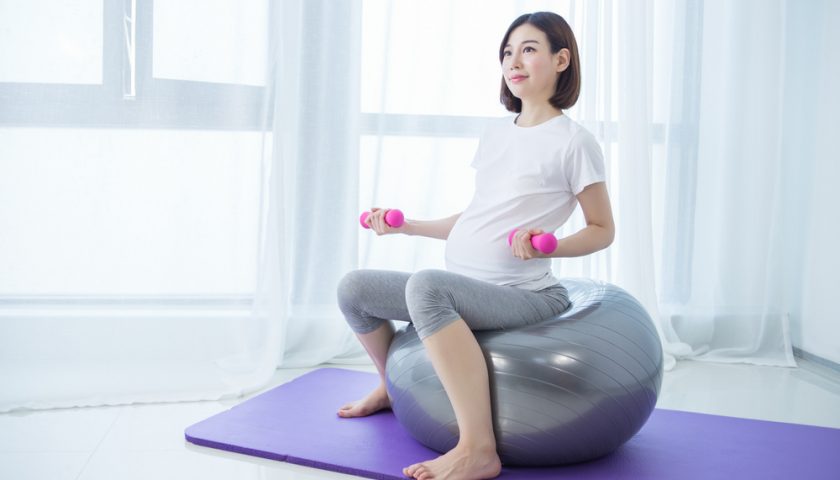Pregnancy brings with it a plethora of fresh experiences and peculiar discomforts!!
Most pregnant women suffer a hammering to their digestive tract, whether it’s constipation, gas, diarrhoea, bloating, nausea, vomiting, or a mix of the above.
On the other hand, pregnant women with irritable bowel syndrome (IBS) must be wondering how their pregnancies will be affected with IBS.
Whether they’ll experience even more severe digestive symptoms than they would otherwise?
To find out the answer let’s have a detailed look at what to expect from IBS and pregnancy combination, their symptoms, and how you can manage them.
Table of Contents
An Overview of Irritable Bowel Syndrome
Irritable bowel syndrome (IBS) is a chronic and recurrent illness that affects the intestines. Abdominal pain and stool abnormalities are the most typical symptoms of this functional gastrointestinal illness.
Although the specific cause of IBS is unknown, it is connected to a number of conditions. Abnormal bowel muscle contractions, anomalies in the digestive system’s neurons, severe viral or bacterial illness, stress, and alterations in gut flora are among them.
In case of bacterial infections, Novidat tablets are prevalent in Pakistan to relieve the symptoms.
Symptoms to Look for!
IBS symptoms can vary from person to person. Common symptoms of irritable bowel syndrome include:
- Frequent diarrhoea
- Bloating
- Abdominal pain
- Constipation
- Burping
- Excessive gas
- Sudden urge to go to washroom
What to Expect With IBS During Pregnancy?
IBS in pregnancy is hard on the intestine. However, it can be difficult to diagnose IBS during pregnancy. This is due to the fact that the symptoms of IBS and pregnancy frequently overlap.
Constipation is a very common ailment, for example. In the third trimester, around a third of pregnant women report constipation. Constipation is worsened by high progesterone because it slows down motility.
Moreover, the later in your pregnancy you are, the more likely you are to develop constipation. This is due to the additional weight placed on your intestines.
High progesterone levels also affect sphincter function, causing heartburn and gastroesophageal reflux disease. Bloating is another common pregnancy symptom that IBS sufferers also experience.
Can Pregnancy Help IBS Symptoms?
IBS symptoms may be alleviated during pregnancy. However, there is currently insufficient evidence to establish a relationship between pregnancy and IBS in all pregnant women.
Are There Any Complications With IBS Pregnancy?
If a woman is diagnosed with IBS before becoming pregnant, she may be at a higher risk of complications such as ectopic pregnancy. As a result, clinicians must be aware of their status in order to provide appropriate prenatal treatment and monitoring.
Adding more unmanaged IBS symptoms can jeopardise a pregnancy. Dehydration can result from prolonged diarrhoea. Constipation causes constant straining of the pelvic floor, which can cause the uterus to move out of place (prolapsed uterus).
If you have any worries about your IBS and pregnancy symptoms, you should see a doctor. To make an appointment with the best gynecologists near you, you can visit Healthwire.pk.
Tips to Manage the Symptoms
Having an IBS pregnancy might be difficult. However, here are some suggestions to help you manage your symptoms.
Drink More Water
Pregnant women, on the whole, require more water. It can help to relieve stomach pain, enhance GI function, and alleviate IBS symptoms. Therefore, hydrate, hydrate, and hydrate yourself.
Get to know how much water you should drink per day.

Do Exercise
Physical activity can also help with IBS pregnancy symptoms. Unless otherwise instructed, best doctors from gyne hospitals in Lahore recommend that pregnant women engage in at least 150 minutes of moderate-intensity exercise every week.
Follow A Balanced Diet
When it comes to the IBS diet, there is no such thing as a ‘one-size-fits-all’ solution. Just eat modest amounts of food and stay hydrated by drinking enough fluids to keep diarrhoea, vomiting, and nausea at bay!
Here are some suggestions that can help with pregnancy and IBS symptoms:
- Try to include a dietary fibre rich diet such as strawberries, blueberries, oranges, cucumbers, carrots, leafy greens, and whole grains.
- To keep the gut healthy, include probiotics in your diet.
- Beans, lentils, broccoli, asparagus, cauliflower, onion, and cabbage are all gas-producing foods to avoid.
- Avoid tea, coffee, and other caffeinated beverages.
- Make a list of foods that can induce intolerance and stay away from them.
- Seek advice from a nutritionist on what to eat and what to avoid.
Manage Stress
De-stressing through relaxation and meditation is a significant component and mainstay of treatment for IBS because it is a stress sensitive condition.
As hormonal changes and physical discomfort during pregnancy is the main cause of stress during pregnancy. To overcome stress and improve IBS symptoms you can perform:
- Prenatal yoga
- Breathing exercises
- Meditation
- Talk therapy
Take OTC Medications
Constipation in pregnant women can be alleviated by stool softeners and fibre supplements. Probiotics have also been reported to help with digestion.
Take Away!
During pregnancy, the majority of women suffer a variety of GI tract symptoms and discomforts. Pregnancy can increase or alleviate symptoms in women with IBS.
It’s essential for pregnant women to always tell their doctors about any symptoms or changes they are experiencing. Moreover, just making a few lifestyle changes can help you get relief from IBS pregnancy symptoms.
